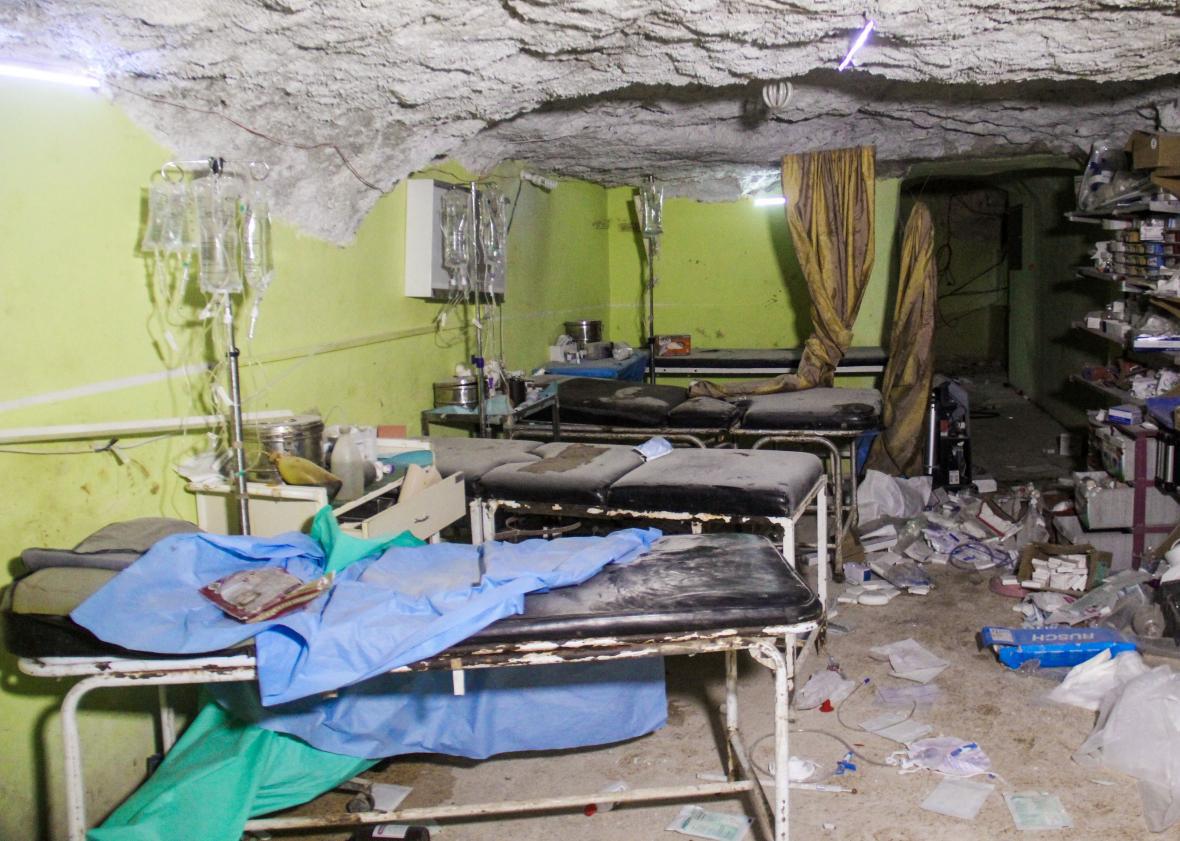Syrian President Bashar al-Assad stands accused of killing dozens of his own people in a chemical attack Tuesday, the worst such attack in years. And American President Donald Trump responded to this reported attack by blaming … Barack Obama.
Initially, the Trump administration could barely even bring itself to condemn the Idlib attack:
When White House spokesman Sean Spicer did condemn it, the vitriol was directed less at Assad than Obama:
“Today’s chemical attack in Syria against innocent people, including women and children, is reprehensible and cannot be ignored by the civilized world,” Spicer said at the beginning of his daily press briefing with reporters. “These heinous acts are a consequence of the past administration’s weakness and irresolution.”
Spicer said Obama had more options when he declared a red line against chemical weapons in 2012.
“What’s the point of red lines?” Spicer said. “America’s credibility was at stake.”
And here is Trump’s official statement:
What Obama could have done differently to prevent the carnage currently engulfing Syria is a big question that is going to be debated for some time. My own view is that while the overall U.S. strategy in the conflict has to be considered a failure given just how tragically bad the situation has gotten, most of the individual decisions made by the previous administration made sense at the time. And given the results of America’s past experiences with arming rebel groups and toppling hostile governments, it’s not clear to me that the aggressive anti-Assad tactics called for by many hawks would have resulted in a better outcome.
Reasonable people can disagree with that view, but one person who doesn’t disagree, though he may think he does, is Donald Trump. Here’s how Trump reacted back when Obama was considering enforcing his “red line” after the 2013 Ghouta chemical attack:
Critics of Obama charge that he should have done more to support the rebel groups fighting Assad and that he sold out the “moderate” Syrian opposition by shifting U.S. attention to the fight against ISIS. Here’s how Trump responded to that argument in a December 2015 debate:
I think Assad is a bad guy, a very bad guy, all right? Lots of people killed. I think we are backing people we have no idea who they are. The rebels, we call them the rebels, the patriotic rebels. We have no idea. A lot of people think, Hugh, that they are ISIS.
We have to do one thing at a time. We can’t be fighting ISIS and fighting Assad. Assad is fighting ISIS.
Trump’s case against Obama on Syria is less a matter of military strategy—Trump doesn’t actually have any ideas about military strategy—than one of messaging. By not backing up his implied threat to punish Assad for using chemical weapons, the argument goes, Obama encouraged Assad to continue his crimes. “I wouldn’t have drawn the line, but once he drew it, he had no choice but to go across,” Trump said in a later debate.
The problem with this argument, coming from Trump, is that if Obama implicitly gave Assad a green light to continue killing, Trump explicitly has. The Obama administration continually decried Assad’s war crimes and maintained that he must step down, even though for at least the past three years, it was clear they had no intention of doing anything to force him from power. The Trump administration, by contrast, overtly made clear several days ago in statements from Secretary of State Rex Tillerson and U.N. Ambassador Nikki Haley that Assad’s removal is not a priority, and is generally indifferent to human rights issues. Trump’s White House has made clear that it’s fine with Assad staying in power and killing his own people, as long as he helps in the fight against ISIS. And the U.S. has itself been killing record numbers of Syrians under new guidelines that downplay the importance of avoiding civilian casualties.
If Assad is as sensitive to signaling from Washington as the White House suggests, how else would he interpret what he’s been seeing in recent weeks except as an invitation to do just what he did Tuesday?
